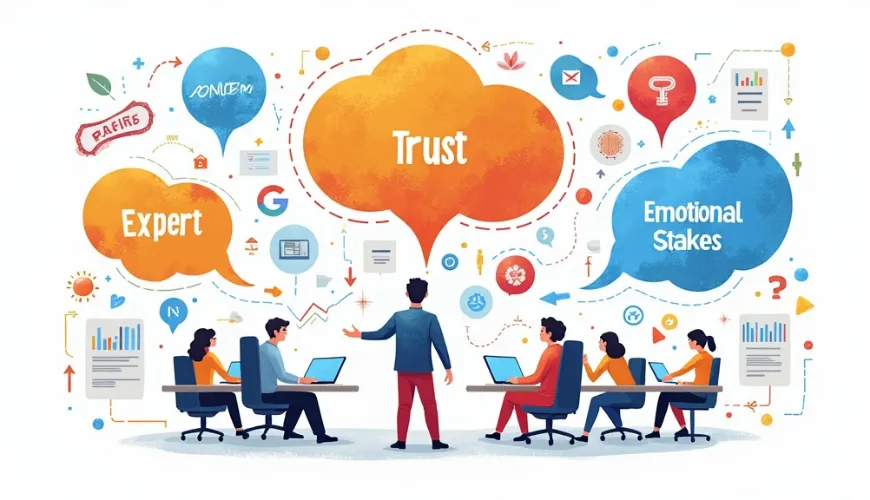Understanding Complex Buying Behavior

In the fast-evolving world of digital commerce, understanding buyer behavior has become more critical than ever. Businesses are investing heavily in marketing strategies, customer data analytics, and brand personalization to align with the intricate decision-making processes of their target audiences. Among the various types of buying behavior, complex buying behavior stands out as both challenging and rewarding to navigate.
So what exactly is complex buying behavior, and why should marketers pay attention?
What Is Complex Buying Behavior?
Complex buying behavior refers to a consumer decision-making process that involves a high level of involvement and significant differences between brands. This typically occurs when the purchase is expensive, infrequent, and emotionally or psychologically significant.
Think of buying a car, a home, or even selecting a premium B2B SaaS solution. These buying decisions are not made on impulse. They involve detailed research, comparisons, consultations, and often, a long decision cycle.
Unlike habitual or variety-seeking buying behavior, complex buying behavior requires customers to move through multiple stages thoughtfully. According to the buyer decision process model introduced by Philip Kotler, these stages include need recognition, information search, evaluation of alternatives, purchase decision, and post-purchase behavior.
Let's break it down with a real-world example.
Imagine a mid-sized marketing team looking to implement a robust CRM platform. This team won't simply select the first tool that pops up on Google. Instead, they'll spend weeks-if not months-comparing tools, reading user reviews, requesting demos, and calculating ROI. The emotional and practical stakes are high, and making the wrong decision could translate into lost productivity or wasted budget. This is a textbook case of complex buying behavior.
Why Complex Buying Behavior Demands Strategic Marketing
Understanding this behavior is more than an academic exercise-it's a blueprint for crafting effective marketing approaches. In complex buying scenarios, consumers are looking for trust, information, and differentiation. They want brands to prove their value before they make a commitment.
Therefore, businesses must focus on building credibility at every touchpoint. This could mean publishing detailed product documentation, customer success stories, or side-by-side feature comparisons. Offering multiple customer support channels, including live chats and onboarding webinars, can also influence the decision-making process positively.
Moreover, content marketing plays a critical role. According to a recent study by Demand Gen Report, 76% of B2B buyers prefer to receive information in a series of content pieces rather than a single, long sales pitch. Blogs, whitepapers, explainer videos, and case studies are all effective tools to support informed decision-making.
Complex buying behavior is not limited to B2B environments. In consumer markets, high-ticket items like luxury electronics, real estate, or educational programs also invoke this type of behavior. The key similarity is that these buyers are looking for expert validation and tangible proof of value.
The Psychology Behind Complex Buying Behavior
At the core of complex buying behavior is a psychological interplay of risk, trust, and perceived value. High-involvement purchases often trigger cognitive dissonance, where consumers feel torn between conflicting ideas-wanting the best value but fearing they may make the wrong choice.
To reduce this dissonance, buyers seek reassurance. They may consult peer reviews, expert rankings, and social proof. They might also revisit a brand's website multiple times before converting. Each of these steps reflects a desire for confidence and clarity before making a commitment.
Marketers who grasp this can provide the right nudges at the right time. Offering free trials, satisfaction guarantees, or side-by-side product comparisons can be incredibly persuasive. As Seth Godin once said, "Marketing is no longer about the stuff that you make, but about the stories you tell.” And when it comes to complex purchases, stories that emphasize trust and utility go a long way.
Emotions also play a pivotal role. Though the process appears rational, many decisions are influenced by brand identity, aesthetics, and user experience. A sleek interface or a compelling mission statement can tip the scale toward purchase, particularly when the competing products are functionally similar.
How to Influence Complex Buyers
Creating marketing strategies that cater to complex buying behavior is not a one-size-fits-all task. However, there are a few key practices that consistently yield results:
1. Educate, Don't Sell
Buyers don't want to be pushed-they want to be informed. Brands that offer educational content, actionable insights, and expert guidance are more likely to gain trust. Webinars, tutorials, and in-depth blogs demonstrate thought leadership and assist in decision-making.
2. Leverage Multi-Touch Attribution
Since the buying process takes longer and spans multiple channels, using multi-touch attribution models helps businesses understand which touchpoints are contributing most to conversions. This allows for better allocation of marketing resources and campaign optimization.
3. Personalize Every Interaction
Complex buyers often require customized solutions. Use behavioral data to offer personalized product recommendations, dynamic content, and segmented email campaigns. A tailored experience signals that the brand understands the buyer's unique needs.
4. Use Social Proof Strategically
Case studies, testimonials, and 3rd-party reviews carry immense weight. Buyers want assurance that others have succeeded with a product or service before they commit. Featuring recognized industry players or influencers can further strengthen this effect.
5. Design a Frictionless User Journey
From website navigation to the checkout process, removing obstacles can significantly impact conversions. Complex buyers are willing to dig deep, but they won't tolerate broken links, inconsistent messaging, or slow-loading pages.
The Role of Brand Loyalty in Complex Decisions
Another dimension worth exploring is the role of brand loyalty. In situations involving complex purchases, loyal customers often return to brands they trust-especially when prior experiences have been positive. This underlines the importance of customer retention and post-purchase engagement.
Maintaining communication through newsletters, product updates, and customer success check-ins helps keep the relationship active. It also primes the customer for future purchases or referrals, turning a single complex sale into a long-term partnership.
Interestingly, research published by Harvard Business Review shows that emotionally connected customers are more than twice as valuable as highly satisfied customers. They buy more, stay longer, and recommend more often. For brands operating in the complex buying space, this insight is invaluable.
Adapting to an Evolving Consumer Landscape
As digital ecosystems become more sophisticated, so do consumers. The rise of comparison websites, influencer reviews, and social media has empowered buyers with unprecedented access to information. This, in turn, makes complex buying behavior even more widespread-because transparency encourages critical thinking.
Businesses must, therefore, adapt continuously. Utilizing AI-driven analytics, for instance, can reveal patterns in customer behavior and predict purchase intent. Tools like CRM platforms and marketing automation software can help segment audiences and provide the right content at the right time.
Moreover, sustainability, ethics, and corporate social responsibility have become deciding factors in complex purchases. Especially among younger consumers, values-driven decision-making is on the rise. Brands that align with their buyers' ethical standards enjoy stronger loyalty and advocacy.
Complex buying behavior may seem daunting to address, but it offers a valuable opportunity for brands that are willing to invest in trust-building and education. Consumers making high-involvement purchases are not looking for quick fixes-they're looking for long-term solutions, expert support, and meaningful relationships.
By understanding the emotional and rational drivers behind complex buying behavior, marketers can craft campaigns that resonate deeply, convert effectively, and foster enduring loyalty. In a world increasingly driven by data but anchored in human experience, the brands that win are those that understand both.



